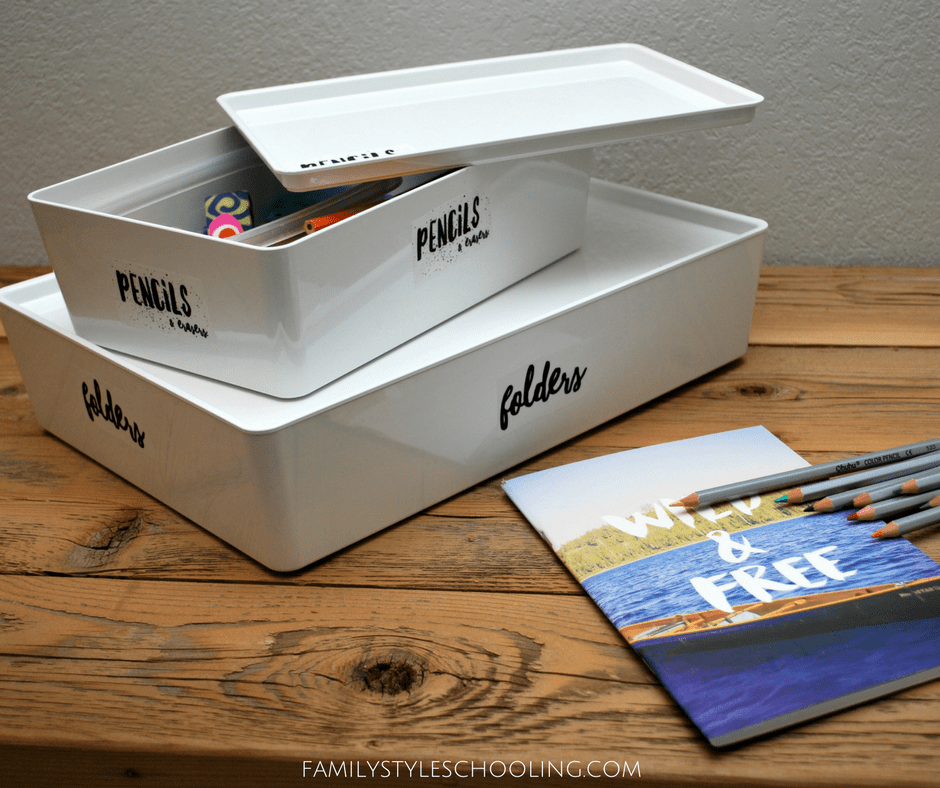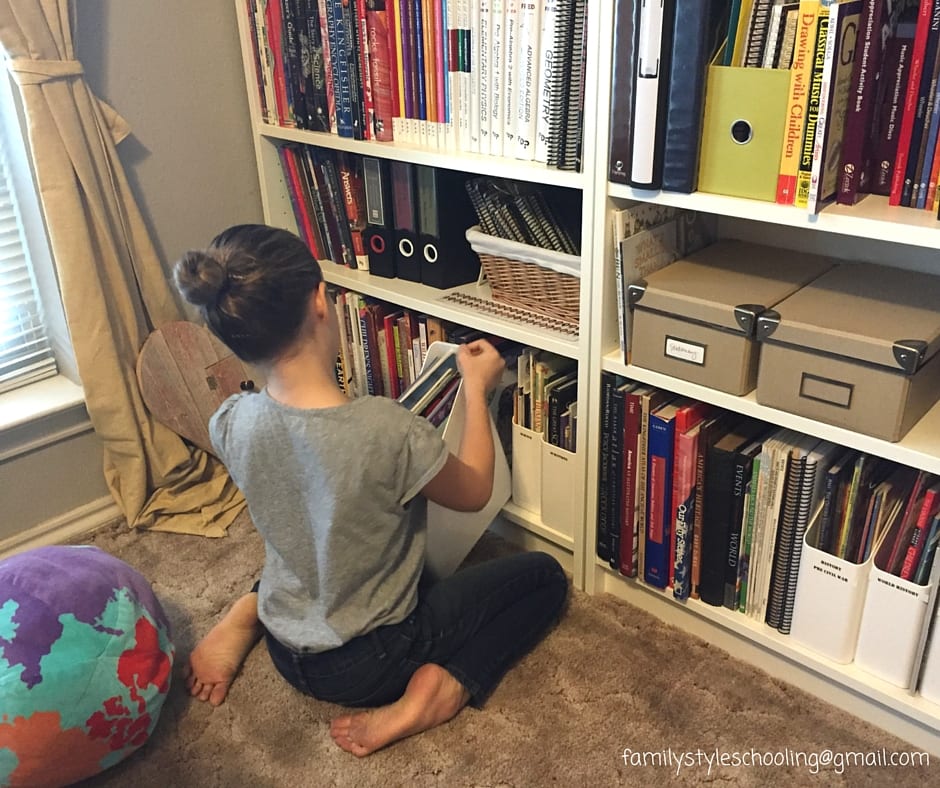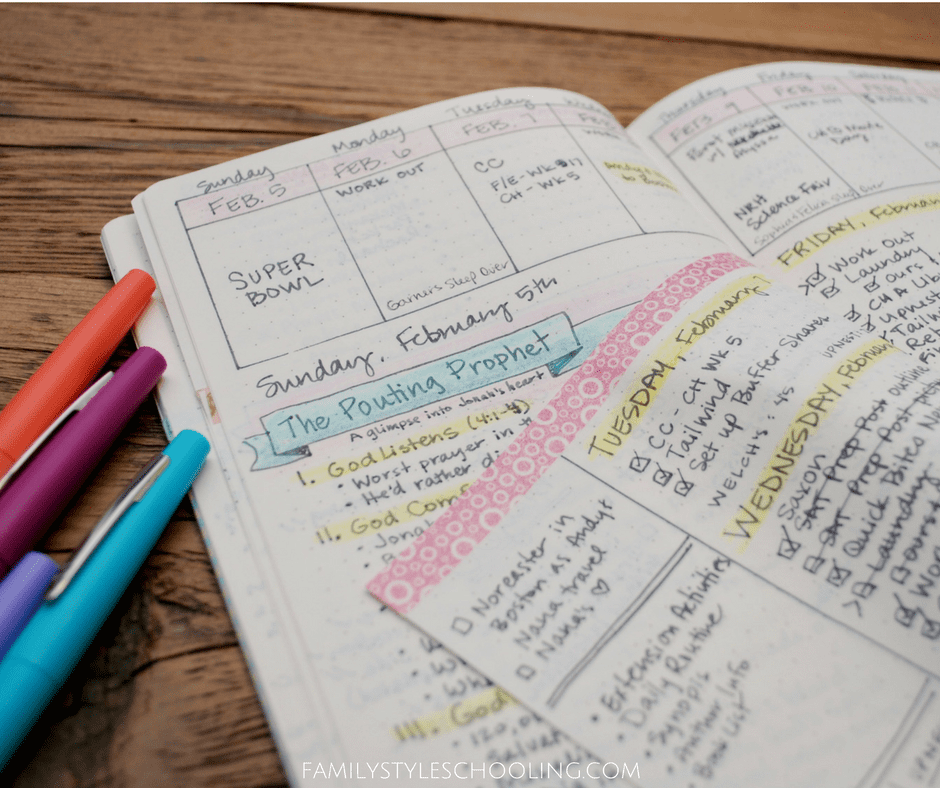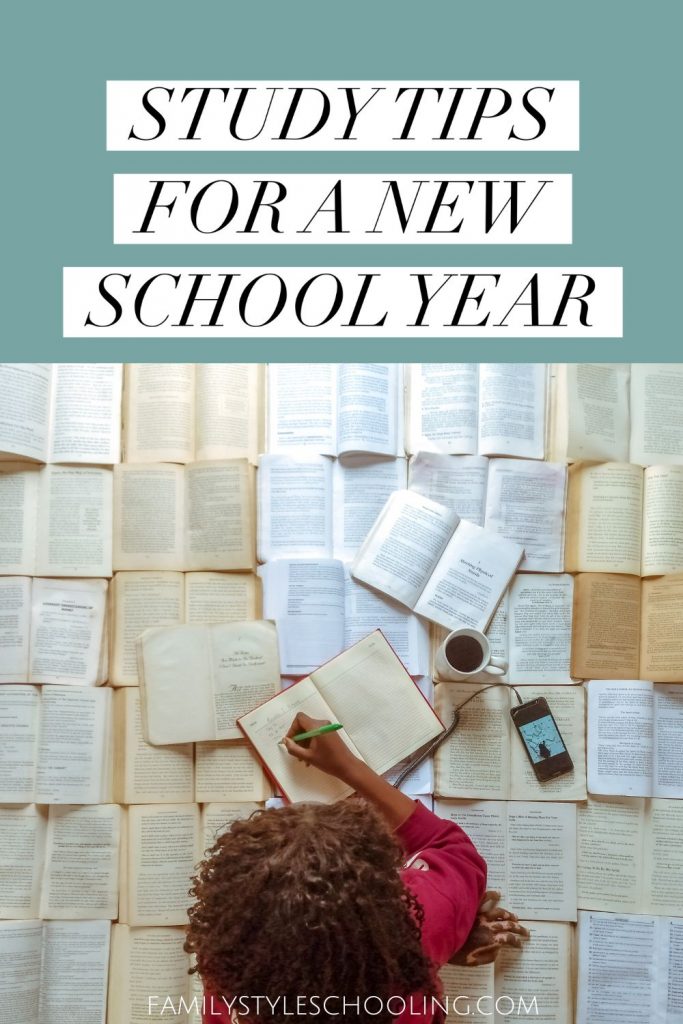Study Tips for a New School Year
Shifting back into study mode after the summer break can be exciting and challenging. Starting new material quickly loses its appeal if you don't have the suitable systems to support the kind of work needed to tackle a new subject. It's easy to feel defeated in a learning environment when you always feel behind. Here are some simple study tips for setting yourself up for success!
1. Organize Your Materials
Nothing is worse than spending the first thirty minutes of your study time hunting down your resources! The best start to a new school year involves arranging your materials so that you can find them when you need them and put them away when you don't! Maybe you need some new storage solutions.
Organizing Materials
Let's face it: homeschoolers have a lot of stuff. Just like any classroom, you accumulate things over time. One of my greatest downfalls is buying cheap school supplies in the fall when I already have ample supplies at home. If your storage isn't organized, you can fall into this trap. Custom labels help bring some fun and design into your room, as well as help things get put away when it's time to clean up.

Reclaim the School Room
Sometimes, more drastic measures need to be taken! If it has been a while since you've used your school room, you may need to do an overhaul. This also applies to those of you who have a school corner or do all your schooling on the go. Tidying up and ensuring that the things you're using are the most accessible help you be more productive in the actual study time. Get your kids involved in this process to help keep it up as you go!

2. Planners are Your External Hard Drives
There is nothing worse than realizing you missed a deadline. Thankfully, our deadlines tend to be a bit more flexible with homeschooling. As I prepare my kids for the future, I want them to know that it is essential to be accountable to due dates and appointments. I like to think of a planner as an external hard drive—something where I can download all of the information that buzzes around in my brain so that I can be sure not to forget it!
One tool that I love is a bullet journal. They are super flexible in allowing for note-taking, schedule planning, and tracking life. We've used physical notebooks for this and Goodnotes or Notability on the iPad.

This year I'm back to an inexpensive physical planner that I can grab and go. With two college students in my life, helping them get all of their syllabus information transferred into one place will help them not make careless mistakes in missing assignments.
3. Study Tips for Watching Your Time
It's easy to lose track of time while "studying." So often, tasks that only need to take thirty minutes can drag on into hours. I know I'm not the only one who has experienced this challenge. We like to use the Pomodoro technique to help us work more efficiently so that we actually have time to do things other than school!
The Pomodoro technique is simply 25 minutes of focused work time, followed by a five-minute break. After three or four "pomodoros," you can take a more extended break. This system is brilliant because it takes bigger tasks and breaks them down into manageable units. You can do anything for a short period of time. There is something magical about knowing that you have a break coming.
You can use a simple kitchen timer, an alarm on your phone, or a more visual time-telling clock. Andy uses this method as he works on writing his senior thesis, and he's making some videos to help others study with him! Each video includes three 25-minute study sessions with two breaks. His study tips in the introduction are also super helpful. They have music in the background to help with focus! I have found them very effective in my study sessions or even when I'm cleaning the house!
4. Engage with the Material
It is amazing how much material you can work through without remembering anything you "learned." Checking off boxes of a to-do list does not equate to true learning. To make the most of your study time, it is best to engage with the materials.
Note Taking
Taking notes on what you're learning is a great way to help yourself remember the material you've just encountered. I do this with summer reading to process what I'm reading and recall it later when it's time to discuss.
I love taking notes on my iPad because of all of the creative ways you can express ideas. This video is one of the most inspirational note-taking videos:
Personal Research
Not everyone loves to take notes, though! One of the best study tips I've learned was from a student who always seemed to remember the material well yet never had notes to reference. I finally found out his secret: personal research.
He would look at the heading of a chapter or section in his science book, skim the material, and then head to YouTube to learn more about that topic. His mind engaged more in this type of information gathering than it would by simply reading the textbook. As he researched, he actively engaged in the material by seeking the most effective explanation of the topic while assessing different approaches to the subject. This synthesis of information helped him own the material.
5. Review Regularly
Even though it may seem that you will never forget an interesting bit of information, if you don't review it, you will not remember. This is the concept behind keeping a commonplace book. Review doesn't have to take a long time.
Reading back over your notes, working through flashcards, or talking about the concepts you're learning with friends can be fun and simple ways to refresh the material in your mind. The more you review, the more firm of a grasp you have of what you're studying.
Making Study Tips Work for You
These study tips require knowledge of yourself to make them truly valuable. Finding the right balance of organization, planning, time management, engagement, and review will help you decide how to approach each subject.
There will be subjects you enjoy more than others and ones that you have more experience with that will not require so much work. As someone who no longer reports to a professor or teacher to get a "grade" on my learning, I have to know how much time to invest in new learning endeavors. What I learn will last longer than any grade I could receive.
Betsy Strauss is an unexpected homeschooler, mother of three, who is in a relationship with a sweet man for life. She loves reading books, drinking coffee, and learning anything with her kids.


